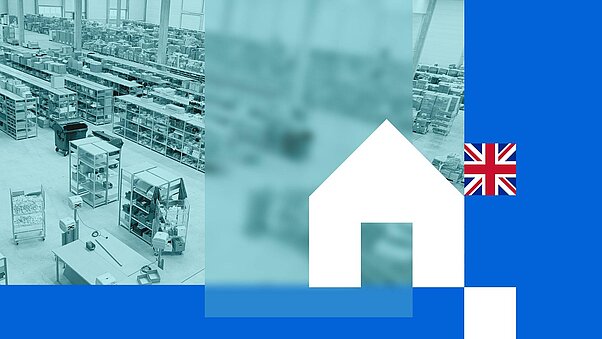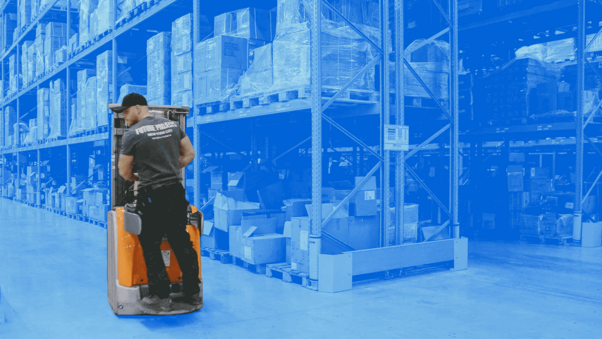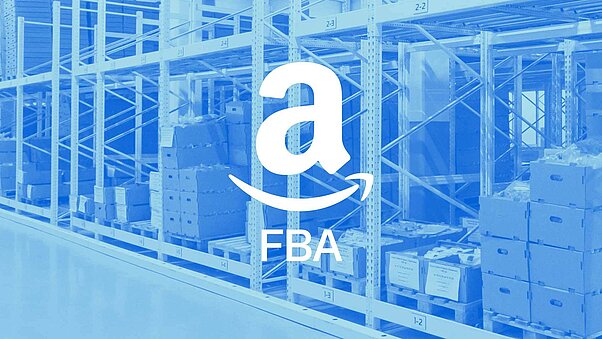Order Fulfilment in the UK: What You Really Need to Know

E-commerce continues to grow—and the UK is leading the charge. To keep up with rising demand, businesses need efficient order fulfilment that ensures fast, reliable delivery. This guide breaks down how order fulfilment works in the UK, the role of specialist providers, and what online retailers should consider when choosing the right setup!
- How Order Fulfilment Works
- The Different Types of Order Fulfilment
- The Technology Behind Order Fulfilment
- Order Fulfilment Challenges in the UK
- 10 Best Practices in UK's Order Fulfilment
- Why Outsourcing Order Fulfilment Pays Off
- Potential Disadvantages of Outsourcing
- When Does Order Fulfilment Make Financial Sense?
How Order Fulfilment Works
Order fulfilment covers the entire journey from the moment a customer places an order to the point it arrives at their door. It’s a multi-step process that includes inventory management, order processing, picking and packing, shipping, and handling returns. Each step needs to run smoothly to ensure customer satisfaction and keep operations efficient.
- Inventory Management: Good stock control is at the heart of effective fulfilment. For e-commerce businesses in the UK, this means keeping enough stock to meet demand without overloading storage. Smart inventory systems can forecast demand and help retailers stay agile in a fast-moving market.
- Order Processing and Accuracy: Speed and accuracy matter. Every order needs to be confirmed, customer details verified, and items prepared for dispatch—fast. With UK shoppers increasingly expecting next-day delivery, efficiency at this stage is crucial.
- Picking and Packing: This is where the physical work happens—finding the right products and packaging them properly. Well-organised storage systems and automation can speed up this step while reducing errors, which is key in a market where precision and speed are expected.
- Shipping and Delivery: Customers often judge their shopping experience by how quickly and reliably their orders arrive. Same-day delivery, click & collect, and flexible delivery slots are all popular in the UK—so businesses need shipping solutions that can keep up.
- Handling Returns: Returns are part of the deal in online retail, especially in the UK, where return rates are high. A clear, hassle-free returns process not only builds customer trust but also helps businesses manage stock and reduce losses.
The UK Market Context:
In the context of the UK market, several additional factors play into the intricacies of order fulfilment:
- Consumer Expectations: UK consumers are known for high expectations regarding delivery speed, convenience, and service quality. Meeting these expectations is vital for customer retention and brand loyalty.
- Market Competition: The UK's e-commerce space is highly competitive. Businesses that excel in order fulfilment often gain a significant edge over competitors, as efficient fulfilment directly impacts customer satisfaction and repeat business.
- Technological Integration: The UK market is at the forefront of adopting new technologies in e-commerce. Utilising cutting-edge technology in order fulfilment, such as AI and machine learning for inventory forecasting or drones for delivery, can provide UK businesses with a unique competitive advantage.
- Sustainability Concerns: There is a growing emphasis on sustainability in the UK. Eco-friendly practices in order fulfilment, such as using biodegradable packaging and optimizing delivery routes to reduce carbon emissions, are increasingly important to UK consumers.
The Different Types of Order Fulfilment
1PL (First-Party Logistics):
You handle everything yourself. This means storing, packing, and shipping products directly to customers using your own resources. It’s simple but can quickly become overwhelming as your business grows.
2PL (Second-Party Logistics):
You still manage storage and order processing, but hire external carriers (like Royal Mail or DPD) to handle the delivery. You stay in control of your warehouse but outsource the transport side.
3PL (Third-Party Logistics):
This is where most e-commerce businesses find the right balance. A 3PL provider takes over key parts of your order fulfilment—like storage, picking, packing, and shipping. You outsource the logistics so you can focus on running and growing your business.
Dropshipping:
With dropshipping, you don’t hold any stock at all. Instead, products are shipped directly from the supplier or manufacturer to the customer. It’s a low-risk model in terms of inventory, but you have less control over quality and delivery times.
Hybrid Model:
Some businesses combine in-house fulfilment with 3PL services. This hybrid approach allows you to keep control over core products while outsourcing overflow or international orders—ideal if you're scaling gradually and want flexibility.
For most e-commerce businesses, 3PL offers the best balance of flexibility, scalability, and cost. Models like 4PL and 5PL are rarely necessary unless you're dealing with high-volume, multi-region supply chains.
The Role of Technology in Order Fulfilment
Technology plays a central role in making order fulfilment faster, smarter, and more reliable—especially in the UK, where the e-commerce landscape is both competitive and fast-moving. From warehouse automation to customer communication, smart tools help streamline every step of the process.
That’s exactly where our Quivo Connector comes in: a powerful, all-in-one fulfilment software that connects systems, automates operations, and sets new standards in efficiency:
Here are some of the key tech-driven advancements shaping order fulfilment today:
- Automated Warehousing:
Robotics and automation boost speed and accuracy in storage, picking, and packing—reducing errors and handling time. - Inventory Management Software:
Real-time stock tracking, demand forecasting, and auto-replenishment help businesses stay in control and avoid stockouts or overstocking. - Smart Shipping Solutions:
Integration with multiple couriers, automated label printing, and optimised routing all contribute to faster, more reliable delivery. - AI and Predictive Analytics:
Machine learning is increasingly used to forecast trends, manage stock more intelligently, and respond faster to market changes. - Automated Order Processing:
From order confirmation to dispatch, automation reduces manual input and speeds up turnaround times. - Enhanced Customer Service:
AI-powered chatbots and live order updates keep customers informed and supported—without adding pressure to your team. - System Integration:
Seamless connection between your online store, warehouse, and shipping services ensures smooth, real-time order fulfilment across all platforms. Sustainable Fulfilment Through Technology:
Tools like route optimisation and waste-reducing packaging solutions help make fulfilment greener—something UK consumers increasingly expect.To stay ahead in a demanding market like the UK, leveraging the right technology isn’t just a bonus—it’s essential. Find out how Quivo can take your order fulfilment to the next level.
Common Order Fulfilment Challenges in the UK
Efficient order fulfilment is essential for UK e-commerce success—but it comes with challenges. From fast delivery to rising costs, here’s what businesses face:
- Managing High Volumes of Inventory:
UK fulfilment centres often handle large and diverse product ranges. Keeping operations accurate and efficient at scale requires strong systems, well-trained staff, and smart warehouse management. - Meeting Rapid Delivery Expectations:
Fast delivery is no longer a luxury—it’s expected. Fulfilment providers must process and dispatch orders quickly while maintaining accuracy and customer satisfaction. In the UK, next-day or even same-day delivery is becoming the norm. - Handling Seasonal Peaks:
Sales events, holidays, and unexpected demand spikes can put serious strain on fulfilment operations. Without flexible processes and the ability to scale up quickly, order delays and errors become more likely. - Controlling Shipping Costs:
Balancing speed and affordability is a constant challenge. With rising transport costs, fulfilment companies and 3PLs must find cost-effective shipping solutions without sacrificing service quality. - Managing International Shipping & Compliance:
For UK-based retailers selling internationally, customs regulations, taxes, and paperwork add another layer of complexity. Staying compliant while ensuring smooth delivery is essential for global success.
To overcome these challenges, UK e-commerce businesses need fulfilment partners who offer not just logistics, but strategy. Agility, innovation, and customer focus are crucial—especially when working with 3PL providers who understand the local market and can adapt quickly!

10 Best Practices in UK's Order Fulfilment
To thrive in the dynamic world of E-Commerce, adhering to best practices in fulfilment is crucial. These practices not only enhance efficiency but are also vital for customer satisfaction and retention. Key points to consider include:
- Investment in Advanced Technology:
- Utilise automated warehouse management systems to reduce errors and speed up processes.
- Implement cloud-based software for real-time inventory management and data analytics.
- Optimisation of Warehouse Layout:
- Efficiently design the warehouse layout to minimise time for picking and packing orders.
- Implement zoning concepts for quick access to frequently sold items.
- Choosing the Right Fulfilment Partner:
- Collaborate with fulfilment providers experienced in your market segment and with similar product types.
- Review potential partners’ Key Performance Indicators (KPIs) for delivery time, accuracy, and customer service.
- Scalable Solutions for Growth Phases:
- Flexibility in warehousing capacity and logistics to handle peak times and growth.
- Partnerships with multiple couriers to ensure capacities and cost-effective shipping options.
- Focus on Customer Satisfaction:
- Ensure fast delivery times and transparent communication with customers about their order status.
- Introduce effective return policies and processes to bolster customer trust.
- Sustainable Practices:
- Implement eco-friendly packaging solutions and optimise logistics to reduce the carbon footprint.
- Promote sustainability through recycling programmes and the use of renewable energy in fulfilment centres.
- Data-Driven Decision Making:
- Use data analytics to predict sales trends and optimise inventory.
- Continuously monitor and analyse fulfilment metrics for ongoing process improvement.
- Personnel Management and Training:
- Invest in qualified personnel and regular training to maintain high performance levels.
- Establish a positive work culture to boost employee satisfaction and productivity.
- Adaptability to Market Changes:
- Flexibility and readiness to respond quickly to shifts in consumer behaviour and market dynamics.
- Continuously monitor the market and adjust fulfilment strategies to new trends and technologies.
- Continuous Innovation:
- Be open to new technologies and process innovations to gain competitive advantages.
- Experiment with novel approaches like AI-driven process optimisation or blockchain for more transparent supply chains.
Implementing these best practices can significantly optimise e-commerce businesses' fulfilment processes, contributing substantially to their success. In a competitive market like the UK, this is crucial for enhancing customer satisfaction and achieving long-term success.

Why Outsourcing Order Fulfilment Pays Off – Even Beyond the Obvious
Most online retailers are aware of the standard benefits that come with outsourcing logistics. But there are a few advantages that often go unnoticed—until you've experienced them yourself.
Here are some key reasons why partnering with an order fulfilment provider is a smart move:
Flexible, scalable storage that grows with your business
No matter if it's a quiet period or peak season—your storage adjusts to the volume. You only pay for the space you actually need.
Fewer errors through automation and smart processes
Automated picking and packing systems drastically reduce human error, helping to keep customers happy and complaints to a minimum.
Faster fulfilment from warehouse to delivery
Optimised processes ensure that orders are picked, packed and shipped as quickly as possible—often on the same day.
Significant time and cost savings
By outsourcing logistics, you free up valuable resources and reduce operational costs—so you can focus on sales, marketing, and growth.
No more headaches over returns
Returns are handled smoothly and professionally, helping to maintain customer trust and keep your internal workload low.
Higher customer satisfaction and repeat sales
Fast delivery and reliable service create a better shopping experience—which often translates into more positive reviews and loyal customers.
Less admin, no hiring hassle
There’s no need to build your own logistics team or manage additional staff. That means fewer contracts, less HR, and more time for your core business.
Potential Disadvantages of Outsourcing Order Fulfilment
Outsourcing order fulfilment brings many benefits—but like any business decision, it’s not without potential drawbacks. Understanding the challenges helps you make informed choices and avoid surprises.
Here are some common concerns to consider:
Less control over your fulfilment process
Handing off fulfilment means relying on a third party to manage a key part of the customer experience, from packaging to delivery.
Limited room for customisation
Some order fulfilment providers work with standard processes, which may not offer full flexibility for branded packaging or tailored workflows.
Initial setup takes time
Integrating your e-commerce system with a fulfilment partner involves onboarding, data syncing, and testing—especially if you're switching from in-house operations.
Varying service quality
Not all fulfilment partners deliver the same level of service. Delays, stock inaccuracies, or poor communication can impact your brand.
Unexpected costs
Without transparent pricing, you may run into hidden fees—for example, for long-term storage, handling returns, or extra packing materials.
That said, most of these challenges can be avoided with the right partner. A reliable order fulfilment provider will work as a true extension of your business—helping you scale without compromising on quality.

When Does Order Fulfilment Make Financial Sense?
Here’s a simple rule of thumb: if you add up the full cost of managing your own fulfilment—including:
- Admin and coordination
- Warehouse rent
- Shelving, storage systems and materials
- Staff wages
- Picking and packing
- Shipping and handling returns
- Plus the impact on customer satisfaction
… and compare that total to a quote from a professional order fulfilment provider, the numbers often come out surprisingly similar.
At that point, outsourcing isn’t just a time-saver—it makes financial sense too. And let’s be honest: you’ll also avoid a whole lot of stress, manual work and logistical headaches.
- How are you currently managing your order fulfilment?
If you’re looking for a fair, transparent and no-strings-attached solution, get in touch. We’ll help you find the setup that works best for your business—without long-term contracts or hidden costs!
Sources
Pictures:
Quivo © 2025, pixabay, Canva







